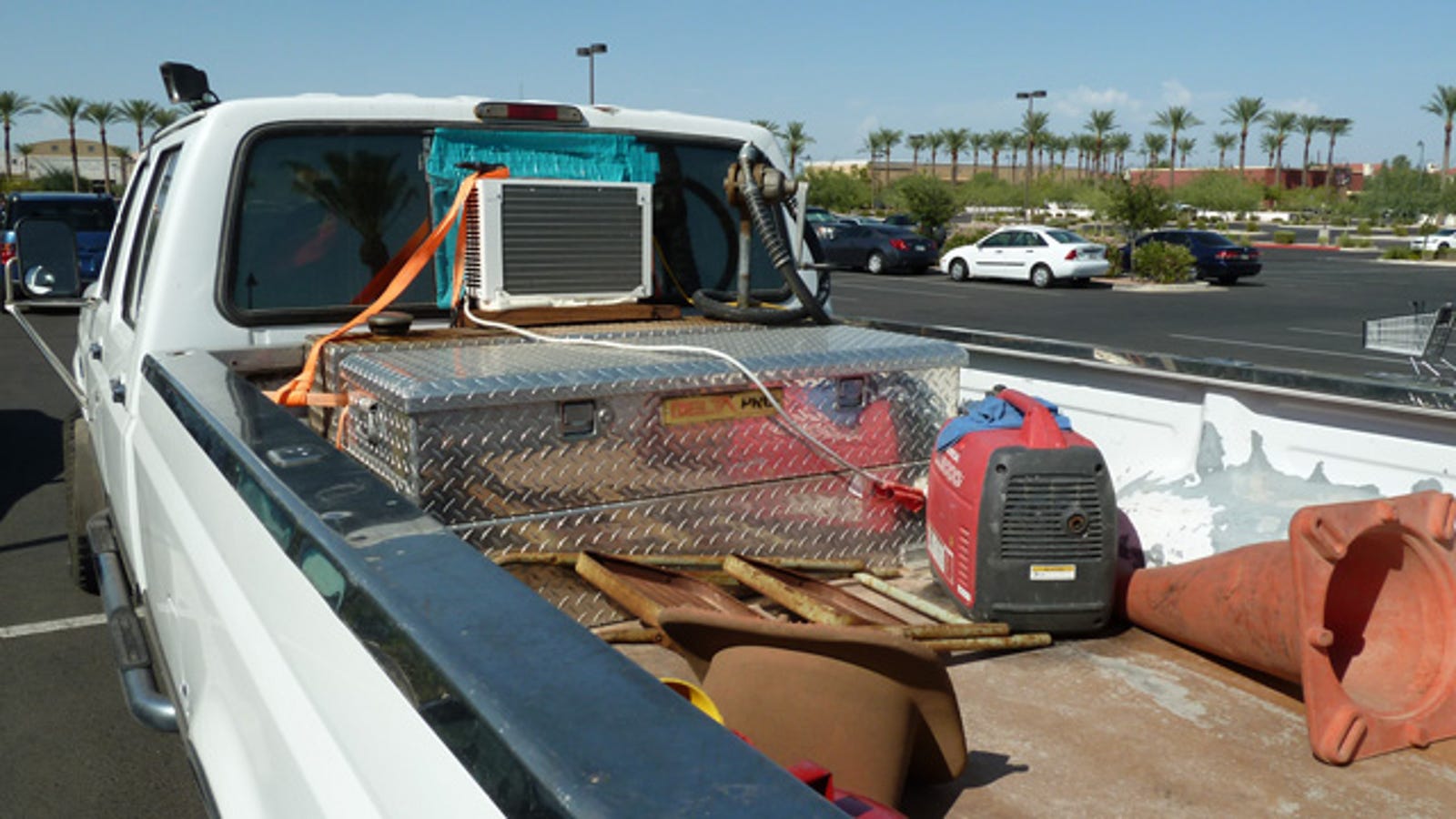You are using an out of date browser. It may not display this or other websites correctly.
You should upgrade or use an alternative browser.
You should upgrade or use an alternative browser.
Running truck idle all night....
- Thread starter treeviper
- Start date
dstefan
Well-known member
In addition to all the other things truck beds in general are far more open to air leaks than an SUV with all the seals, etc. I know my ’09 Tacoma and now my ’21 Tundra beds had more open voids and sneaky places for air/dust/CO access that you could imagine. DK about the new Tundras, but if the composite beds are anything like the 2nd/3rd gen Tacomas, there’s plenty of space for air/CO ingress, including the absolutely porous tailgate closure, which is right above your exhaust.
If you do go that route, get something like this:
 sensorcon.com
sensorcon.com
(No affiliation) it’s quite sensitive and gives you measured PPM readout from zero to whatever. It will alarm a 25 ppm which is a lot lower than the standard CO alarms which don’t alarm until 70ppm for an hour at which rate you’re already having problems, just not unconscious. I have one of these and use it whenever cooking inside or running my heater. Works great.
If you do go that route, get something like this:
Buy Portable CO Detectors & Gas Detectors Online | Sensorcon
Shop & discover our wide selection of the top brands and best quality CO & Gas detectors available exclusively online here at Sensorcon! Featuring portable devices that utilize electrochemical sensors for fast & accurate measurements of CO. FAST SHIPPING available now in the USA, Canada, UK &...
(No affiliation) it’s quite sensitive and gives you measured PPM readout from zero to whatever. It will alarm a 25 ppm which is a lot lower than the standard CO alarms which don’t alarm until 70ppm for an hour at which rate you’re already having problems, just not unconscious. I have one of these and use it whenever cooking inside or running my heater. Works great.
ThundahBeagle
Well-known member
Defeats the purpose the OP stated
But they get to not die of carbon monoxide poisoning. It's not as if tempered glass has much insulative properties anyway. Lose a little economy, gain a lot of insurance
ThundahBeagle
Well-known member
Cross-breeze. Crack one on each side, for example. Still better off than totally closed windows, especially if you have the dash fan running with the a/cAs @NOPEC points out - CO isn't to be messed with, small crack in window may not be enough....
nickw
Adventurer
You are right, it is probably better than nothing but it doesn't mean its a good idea.Cross-breeze. Crack one on each side, for example. Still better off than totally closed windows, especially if you have the dash fan running with the a/c
This whole discussion is a bit scary to me.
Generally, like most folks here on ExPo, I am happy just to let things slide by if I am not overly interested in the discussion or the information being bandied about even if it is what I perceive as misinformation. Most of it is harmless and if you can't decide on tire size or brand or the other stuff we all seem to fuss about, it is generally a non-issue to me. However, spending time in a vehicle with the engine running is a different matter, in my opinion.
I spent 35 years combined as a police crime scene examiner, a Coroner and ultimately, a teacher of Coroners. During that time, I spent a considerable amount of time in the presence of very pink human cadavers who has succumbed to hypoxia caused by exposure to carbon monoxide (CO). The problem with CO and the much misunderstood realities of being exposed to it, is simply that it is not a fresh air issue. If you are exposed to CO for an expended period and breathing the air(fresh or otherwise) that it is in, it will ultimately kill you. Unless the "fresh" air is being blasted by your nose and mouth and thus blowing the CO away, having passive, non moving fresh air around you doesn't help you one little bit if there is CO in it.
Very simply, it is a human physiology problem with regards to the takeup of Oxygen (O2) by the hemoglobin in the blood from the air in the lungs. Again very simply, the O2 molecule is more "complicated" than the CO molecule. So, if the hemoglobin in the blood is offered both O2 and CO in the same air, it will automatically take up more of the CO. After a while with CO saturation in the blood, the hemoglobin is unable to take up any oxygen and the exposed individual will succumb due to a lack of oxygen (hypoxia). "Carbon Monoxide Poisoning" is a misnomer. CO is known as the "silent killer"(for good reason) and is both odorless and insidious.
There is nothing worst than a nagging Nellie, I get that but my advise is that if there is anyway of avoiding sleeping in a running domestic vehicle that has an under body exhaust system, take the other
I'm curious why there isn't a lot more truckers at truck stops dying, since they routinely sleep in their trucks while idling. Or maybe there is and i just haven't heard about it.In another life, I worked as a death investigator and came across many individuals whose deaths were as a result of hypoxia caused by exposure to carbon monoxide (CO). The problem with CO and the much misunderstood realities of being exposed to it, is simply that it is not just a fresh air issue. If you are exposed to CO for an extended period and breathing the air(fresh or otherwise) that it is in, it will ultimately kill you. Unless the "fresh" air is being blasted past your nose and mouth and thus blowing the CO away, having passive non-moving fresh air around you doesn't help you one little bit if there is CO in it.
Very simply, it is a human physiology problem with regards to the takeup of Oxygen (O2) by the hemoglobin in the blood from the air in the lungs. Again very simply, the O2 molecule is more "complicated" than the CO molecule. So, if the hemoglobin in the blood is offered both O2 and CO in the same air, it will automatically take up more of the CO. After a while with CO saturation in the blood, the hemoglobin is unable to take up any oxygen and the exposed individual will succumb due to a lack of oxygen (hypoxia). "Carbon Monoxide Poisoning" is a misnomer. CO is known as the "silent killer"(for good reason) and is both odorless and insidious.
There is nothing worst than a nagging Nellie, but my advice is that if there is anyway of avoiding sleeping in a vehicle that has an under body exhaust system and has the motor running, take any other option.
ThundahBeagle
Well-known member
Ventilation
NOPEC
Well-known member
It is a good question and I am no expert on 18 wheeler truck design but I would guess that the high exhaust stacks would keep the exhaust gases far enough away to not be a problem. I am guessing that there has been lots of engineering put into the exhaust design of these big rigs to cover off the very point you make, especially considering most of them have a factory built in sleeper compartment. 86scotty mentioned attaching a hose and running it away from the vehicle hose which is the same principle.I'm curious why there isn't a lot more truckers at truck stops dying, since they routinely sleep in their trucks while idling. Or maybe there is and i just haven't heard about it.
I don't know them but there would be numbers associated to the inverse relationship between distance from the source vs CO concentrations at those various distances. I suspect those concentrations would fall very quickly once the concentrated exhaust gas is released into the atmosphere. Out in the atmosphere CO is not really that dangerous to us humans. It is dangerous when we are directly exposed to it at a breathing distance for lengthy periods of time. Avoid that and there is no issue.
nickw
Adventurer
Well in part because the exhaust stacks are way above the cab, the engine bay is further removed from the cab (at least in a non cab over design the manifold is not under the driver compartment) and more importantly diesel produces FAR less CO than a gas rig does by a huge margin, around ~20x less.I'm curious why there isn't a lot more truckers at truck stops dying, since they routinely sleep in their trucks while idling. Or maybe there is and i just haven't heard about it.
86scotty
Cynic
Well in part because the exhaust stacks are way above the cab, the engine bay is further removed from the cab (at least in a non cab over design the manifold is not under the driver compartment) and more importantly diesel produces FAR less CO than a gas rig does by a huge margin, around ~20x less.
This is mostly correct but most newer road tractors have weed burner exhausts, not stacks anymore. This is 'trucker speak' for regular exhaust underneath like a typical vehicle.
Trucks are also very well sealed, impressively so in fact.
Tudor Tanase
Active member
CO is dangerous, we had people die here using a small genset in a garage after a cyclone.
This being said, you'd think that if you have the air on "fresh" and NOT recirculate, and the air intake a looong way away from the exhaust and drawing directly from outside (as it usually is), you'd have a constant positive pressure gradient in the cab. Much like NBC safe military vehicles which rely on filtered forced ventilation creating an overpressure inside and thus preventing unwanted air/dust comingin through cracks etc. Or like all the positive pressure dust ingress prevention devices for offroad caravans, earthmoving plant etc. Theoretically no way for CO to get in. Practically also get a CO alarm, that's cheap insurance whatever you do.
This being said, you'd think that if you have the air on "fresh" and NOT recirculate, and the air intake a looong way away from the exhaust and drawing directly from outside (as it usually is), you'd have a constant positive pressure gradient in the cab. Much like NBC safe military vehicles which rely on filtered forced ventilation creating an overpressure inside and thus preventing unwanted air/dust comingin through cracks etc. Or like all the positive pressure dust ingress prevention devices for offroad caravans, earthmoving plant etc. Theoretically no way for CO to get in. Practically also get a CO alarm, that's cheap insurance whatever you do.
Similar threads
- Replies
- 3
- Views
- 959
- Replies
- 67
- Views
- 7K
- Replies
- 3
- Views
- 425
- Replies
- 62
- Views
- 13K
- Replies
- 16
- Views
- 1K


